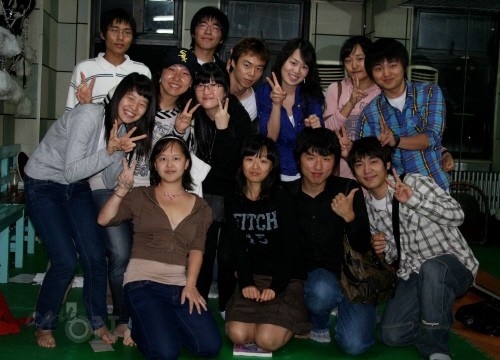
This weekend, while wandering around the Seoul?subway, I met a Turkish man; the first foreigner ?(besides my classmates) I have met in Korea. We talked for a long time, and knowing I would write an article on the subject, I asked him many questions about communication between foreigners and Koreans. For someone who has spent several years in Korea, opened a business here, and even married a Korean woman, I was surprised at how pessimistic his answer was. To sum up his answer, he basically said that the longer you stay in Korea, the harder it is to adapt and accept the differences in culture, and communicating beyond a superficial level is more complicated than it seems at first. As I reach my second month in Korea, I am starting to see the complexities of communication between people of two very different cultures. Although so many people here speak fluent English, understanding one another goes further than common language. Culture, customs, and etiquette are also incredibly important in communicating.
?
As exchange students at Chung Ang University, most of us cannot speak Korean. Although most of our classmates speak English very well, they are often shy to use English. Approaching foreigners can be equally intimidating for some, and many students I have met were shy at first, admitting it was the first time to talk to a foreigner in Korea. Still, however, alcohol and an open mind is always helpful in breaking down cultural barriers. ?In fact, my personal experiences in communicating with Koreans have been amazing to say the least. I have made many friends here who I love and can trust with anything. Even with Americans, this kind of friendship is rare. For me, language is usually irrelevant because I know my friends so well, and if we can't communicate with language, we can still understand each other through body language, facial expressions or just knowing each other's personality. I feel so lucky to have met so many amazing and down to earth people while living in Korea. ?
However, I'm not sure everyone is as lucky as I am. For others, it is hard to make true friendships with Korean students. Sometimes, talking to people with a language barrier takes so much energy and more time. It is easier to simply talk to someone of the same country. Foreigners everywhere have the tendency to stick together.
In addition to fear of communication, there are also many things that just don’t translate from one language to another. I have encountered many Korean words that have no true equivalent in English. Also, words can have different connotations that do not always carry from one language to another. So when communicating with someone from another country, it is important to know their language too. For example, Korean language has so many forms of speaking, and using polite forms for respected people is very important. Without understanding the language rules, how can we truly understand the culture?
Still, however, it seems that many Koreans find it easier to talk to foreigners because they view us as more open than other Koreans. I don’t think this is always true; however it is a common stereotype that Western people are more open minded and less conservative. From my experiences here, I feel like people are very open with me. Even with other Americans, it is not common to have such deep and open conversations, and it is really flattering when people feel they can trust me.
Despite the communication barriers, I've learned that body language, laughter, and true friendship need no?words. If two people are dedicated enough to put the effort into communicating, then their friendship will only be stronger. The best way is to just try to communicate whatever you are thinking, feeling, or interested in. As long as you are passionate about the topic, there are many ways of expressing what you want to say. In the end, everyone gains from true, straightforward interaction. Even when I can’t understand someone, I appreciate their efforts. So if you ever have the opportunity to step outside your comfort zone and talk to someone from another culture, don’t ever let that opportunity pass you by.
By Gwendolyn L. Rouse
Guest reporter/ glrouse2080@winona.edu

